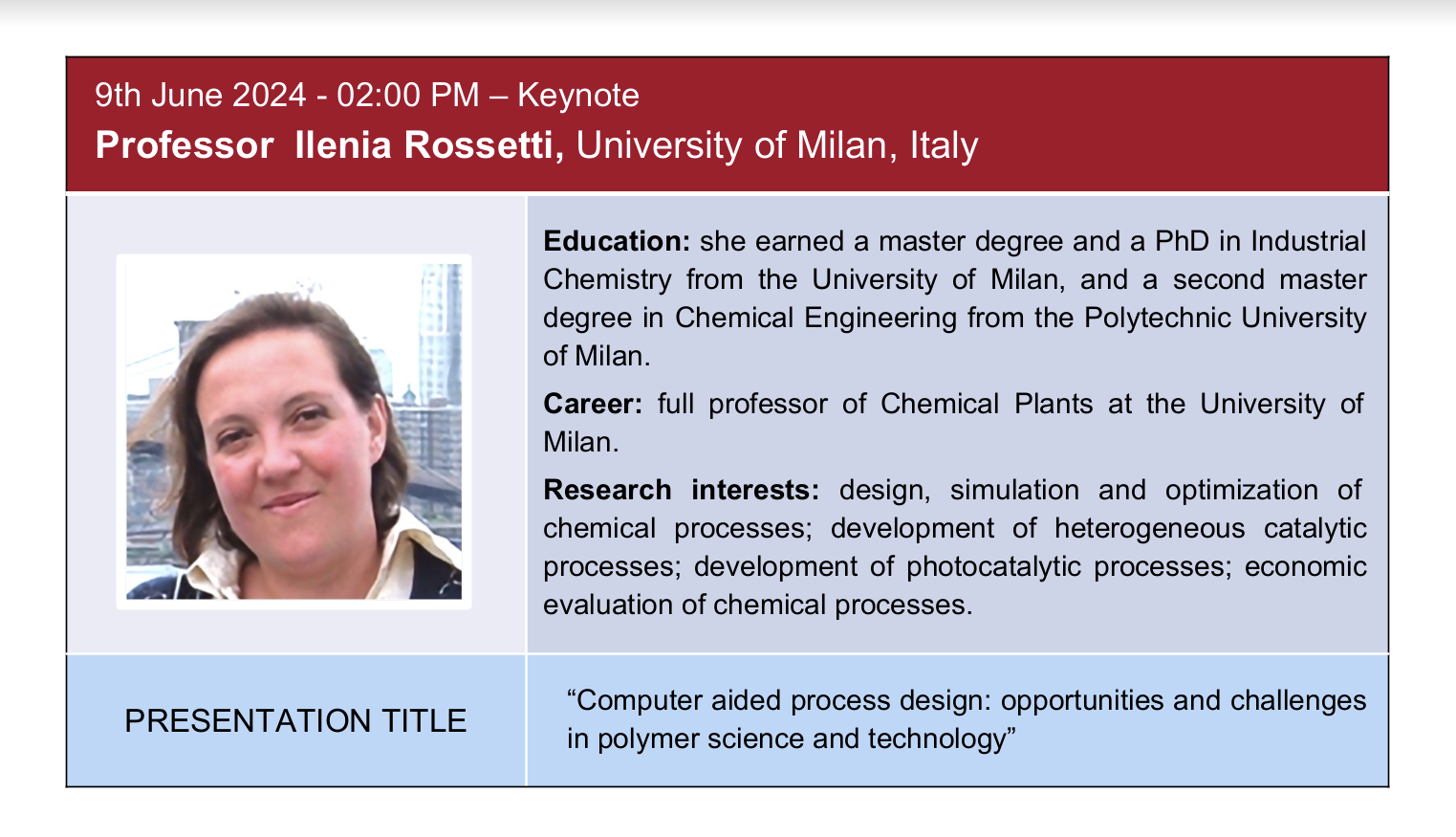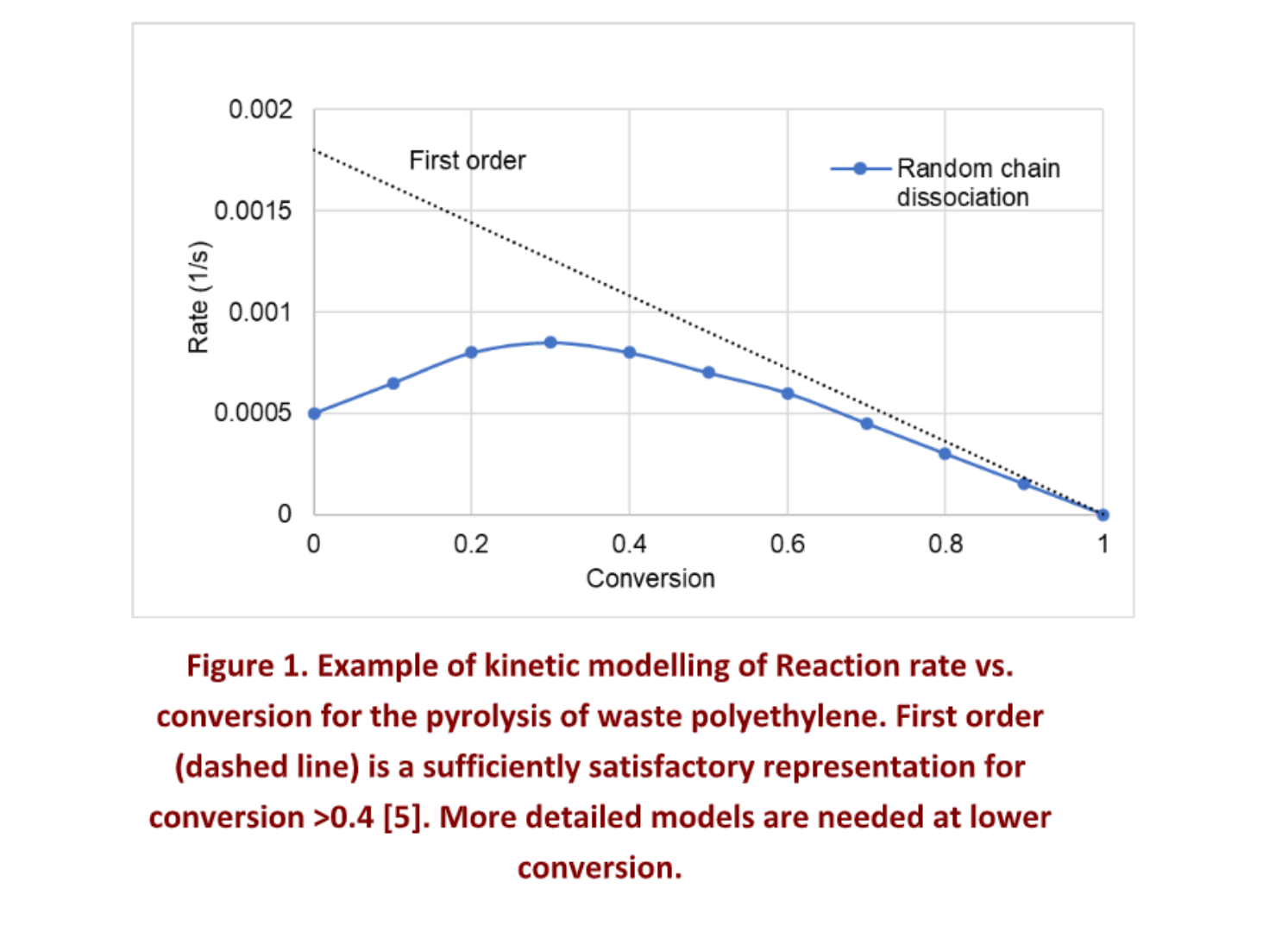Computer aided process design: opportunities and challenges in polymer science and technology
Ilenia Rossetti, Alice Gramegna, Simge Nax Degerli, Matteo Tommasi

The possibility to exploit in silico process design and modelling tools is ever more attractive in view of the Industry 4.0 and digitalisation strategies, to save time and money for the application oriented discovery of new materials and formulations and the relative production process. The realisation of digital twins allows to replicate the main features of a process to predict the optimal operation points, possible hazards or safety issues, as well as to accompany the experimental development of materials and formulations early exploring the boundaries for technoeconomic feasibility. As well, the currently developing machine learning applications in this field are suitable to identify possible formulations on the basis of the desired properties, thanks to large datalakes available. All these features are already tested both in the synthesis of polymeric materials [1-3] and in their disposal cycle (Figure 1) [4,5]. Some examples of application of computer aided design in this field will be presented to highlight the opportunities offered by these approaches, the correct handling of data and instruments, and the relative challenges.

References
- S. Wu, Y. Kondo, M.-aki Kakimoto, B. Yang, H. Yamada, I. Kuwajima, G. Lambard, K. Hongo, Y. Xu, J. Shiomi, C. Schick, J. Morikawa, R. Yoshida Comput. Mater. 2019, 66, 1.
- T.B. Martin, D. J. Audus ACS Polym. 2023, 3, 239.
- C. Yan, G. Li, Adv. Intell. Syst. 2023, 5, 2200243.
- J.J. Urm, J.H. Choi, C. Kim, J.M. Lee Comput. Chem. Eng. 2023, 179, 108451.
- I. Rossetti, F. Megna, A. Tripodi, F. Conte, G. Ramis, DGMK Tagungsbericht 2022, 134.
- A. Tripodi, I. Prada, M. Tommasi, I. Rossetti Bioenergy & Biofuels, submitted.